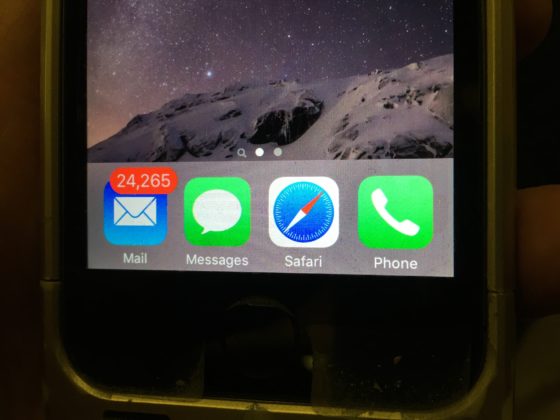
This is a guest post by Ryan Snow.
Screens are everywhere. You can’t make a call or even make your coffee without looking at a screen. After reading Kevin Kelly’s book, The Inevitable, where he writes about the future of screening, I decided to examine my own use of screens.
Here is a recap of a typical day of mine. As I am sure is the case with your days, it’s filled with interactions with screens.
I wake up at 7:00 a.m. to my alarm screen, and hit the snooze button to give me eight minutes of additional rest. After the eight minutes, the alarm goes off again and I hit the screen to shut it off so I can get up and get ready for work.
Before getting dressed, I check my phone screen for the weather. After that, I open another app that will give me the bus times. I finish getting ready and go to the bus stop to wait for the bus.
The bus comes in three minutes, as my phone screen predicted. I grab a seat and use my phone screen to play games or check social media depending on what I feel like that day.
When I arrive at work, I head to the elevator. Using a screen, I select the floor I want. The screen tells me which car I will take. After entering the car, I read the screen in the elevator for the news headlines.
Once at my desk, I turn on my work computer, which has two screens to help me be productive.
When it’s time for lunch, I warm my meal in the microwave and wait for the microwave screen to tell me when my food is ready. In the cafeteria, a television screen shows me the news while I eat. When I finish eating, I type what you are reading on my computer screen.
I return to the work screens for another hour. After that, I have a meeting. The meeting room has a table and a television screen at the end. My coworker pulls up some pages on the screen. We all discuss what we see on the screen.
When the meeting is over, I return to my work screens to accomplish what we discuss in the meeting. A few hours later, it is time to go.
My next destination is the gym. I change clothes and head over to the weights. On my phone screen, I check what exercises I will do today and what weight I will be lifting. Upon completing the lifts, I record on my phone screen what I did.
It is 6:30 p.m. when I get home. I cook dinner and decide that while I eat I will take a break from looking at any screens. A few ideas pop in my head of things I want to do later. I set a reminder on my phone screen.
After cleaning up from dinner, I go to my computer screen and watch a guitar lesson. Then I practice what I learned.
Before bed, I take a screen break and read a book for an hour. Then I rest up for another day of screening.
After taking inventory of my screen usage, it bothered me how dependent I am on screens. I need the screens to perform my job, to get and share information, and to help me with everyday activities.
Screens are not a bad thing. They help me save time and perform important activities. At the same time, they take me away from the present moment.
As a result of taking note of this typical day, I decide to make sure to take more time away from screens; to make sure I take time to interact with the world around me, instead of the screen. For example, I have been working to make sure when someone is talking to me I am being present, not reading something on my screen.
I’m glad I have made this decision now—our use of screens will increase over time as screens are added to additional aspects of our lives.
How will you address the issue of screens in your life? Please join the conversation with your comments…
Ryan Snow lives in Chicago and works as a software tester. He enjoys playing sports, reading, playing guitar, and writing for his blog.
